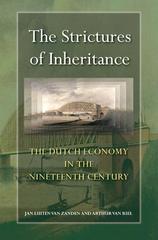Question 3: This question asks you to reconsider the "doing-it-once" environment that we studied in class (Example 1 and Example 2 from Topic 3d), except that we now consider costs and rewards that do not rise monotonically. For both parts, suppose that you value rewards and costs linearly, and that you have g 5 preferences with : 1/ 2 and 6 = 1. (3.) Suppose there is an onerous task that you must complete on one of the next 7 days. If you complete the task on day t' the cost is Ct; where (51,62,63,C4,(:5,C,67) = (12,814,265, 20,44, 80). There is no reward. (i) When is the best time to complete the task (given longrun preferences)? (ii) When do naifs complete the task? TWhen do sophisticates complete the task? (iii) Discuss how the outcomes here compare to the outcomes in Example 1. (b) Suppose there is a pleasurable task that you get to complete on one of the next 7 days. If you complete the task on day t, the reward is of, where (tila 92, \"3394:715211'6: 1,7) = (3, 8, 2, 14, 22, 30, 40). There is no cost. (i) When is the best time to complete the task (given longrun preferences)? (ii) When do naifs complete the task? When do sophisticates complete the task? (iii) Discuss how the outcomes here compare to the outcomes in Example 2. Question 4 This question also asks you to reconsider the "doing-it-once" environment, except that we now consider an activity that generates BOTH rewards and costs. Throughout, suppose that you value rewards and costs linearly, and that you have 315 preferences with 5 = 0.9 and J = 1. Suppose there is an activity that you will complete on one of the next 6 days. As a function of when you do the activity, your reward will be st and your cost will be ct, where (1,C2,C3,:4,C5,cs) = (70, 70, 70, 75, 80,85) and (\"1302: v3! v4, 1.5, vs) = (56, 73, 80,80, 80, 80). However, there are two pos- sible cases for when you receive these payos: . Immediate costs: you incur the cost when you do it, and receive the reward in the future. . Immediate rewards: you receive the reward when you do it, and incur the cost in the future. For instance, if you do the activity in period 4, your cost is c,1 = 75 and your reward is 114 = 80- For immediate costs, the cost c4 = 75 is incurred in period 4 while the reward 414 = 30 is received sometime later. For immediate rewards, the reward v4 = 80 is received in period 4 while the cost 94 = 75 is incurred sometime later. Since we are assuming 6 = 1, exactly when later is irrelevant. (a) When is the best time to complete the task (given longrun preferences)? How does your answer depend on the timing of rewards and costs? (b) Consider the case of immediate costs. When do naifs complete the task, and when do sophis- ticates complete the task? Using long-run utility, what is the welfare loss for each type? (c) Consider the case of immediate rewards. When do naifs complete the task, and when do sophisticates complete the task? Using longrun utility, what is the welfare loss for each type







